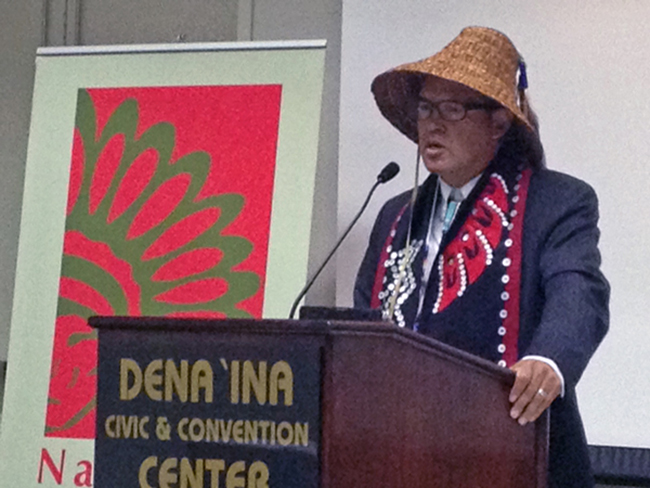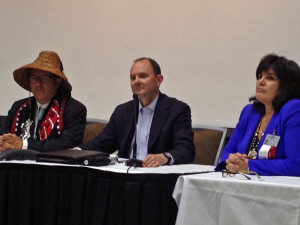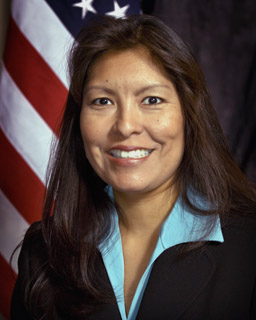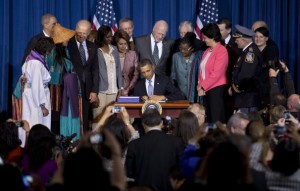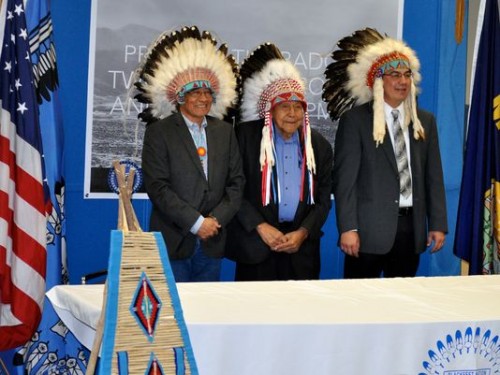
By Karl Puckett, Great Falls Tribune
The Blackfeet Tribe and National Congress of American Indians (NCAI) announced a campaign Wednesday to cancel the remaining oil and gas leases within the Badger-Two Medicine area.
The rock band Pearl Jam and member Jeff Ament, who originally is from Big Sandy, will be reaching out to their supporters to encourage them to join the campaign, it was announced during a news conference.
The 165,588-acre area is almost entirely within roads and features mountains, ridges, river valleys and wetlands along the Rocky Mountain Front.
The area has 47 oil and gas leases that the Blackfeet and NCAI contend were illegally granted more than 30 years ago without tribal consultation. Today, 18 leases remain. In 2013, Solonex LLC filed a lawsuit against the U.S. government to begin drilling in the area.
The Blackfeet announced a campaign to urge Congress, President Barack Obama and federal agencies to cancel all remaining leases in the Badger-Two Medicine, which is located at the intersection of the Blackfeet Indian Reservation, Glacier National Park and the Bob Marshall Wilderness.
Tyson Running Wolf, secretary of the Blackfeet Tribal Business Council, said drilling in the lands that are at the heart of the tribe’s creation story with so much cultural significance is not an option. The tribe will be putting the full weight of a growing alliance behind efforts to stop drilling, he said.
“The Badger-Two Medicine is a sacred place where the Blackfeet people gather food and medicine,” Running Wolf said.
The fight against the oil and gas leases was announced during a news conference conducted in Browning by Running Wolf; Blackfeet Chief Earl Old Person; John Murray, Blackfeet tribal historic preservation officer; Jacqueline Johnson Pata, executive director of the NCAI.
Old Person led the announcement with a prayer.
Tribal members have been struggling with the possibility of development in the Badger-Two Medicine for awhile, he said. Past leaders of the tribe said wars of the future would not only be with bows and arrows, he said.
Running Wolf said the Blackfeet Nation has been fighting to protect the area for more than 30 years. Under the Reagan administration, 47 oil and gas leases were illegally issued without consulting the tribe, he said. With the announcement, the full weight of the tribe and a growing alliance is behind the effort.
“We will never let this happen,” Running Wolf said.
Murray said the campaign will include billboards and a website, badger-twomedicine.org. There also is a petition on change.org asking Interior Secretary Sally Jewell and Agriculture Secretary Tom Vilsack to cancel the leases.
The tribe also is reaching out to faith and business communities and national environmental organizations to bring their voices to millions of people around the nation.
Ament, of Pearl Jam, will be helping out as well on social media.
“We’re going to be mobilizing his resources to get the message out about the Badger-Two Medicine,” he said.
Ament, bass player for Seattle-based Pearl Jam, issued a statement through the tribe.
“The Blackfeet Nation sits on the front range of the Rocky Mountains of Glacier National Park, one of the most spiritual and beautiful spots in Montana,” Ament said. “Drilling for oil and gas has no place in the Badger-Two Medicine. Clean water and clean air are precious resources that hold the key to the future of the Blackfeet people and all Montanans. Please cancel the leases in the Badger-Two Medicine.”
On its Facebook page, Pearl Jam urged its followers to join the Blackfeet Nation to protect Badger-Two Medicine region that included a picture of Ament and U.S.Sen Jon Tester, D-Mont.
Johnson Pata, executive director of the NCAI, said Indian access to sacred places is critical responsibility to federal agencies.
“NCAI has requested that the Department of the Interior consult with the tribe on the Badger-Two Medicine, and we are hopeful that the agency will move to cancel all remaining oil and gas leases that threaten the area’s preservation,” she said.
The Blackfeet also announced partnerships with 18 Montana, Idaho, Wyoming, and Canadian Native tribes and nations, The Wilderness Society, National Parks and Conservation Association, the Montana Wilderness Association and the Glacier-Two Medicine Alliance.





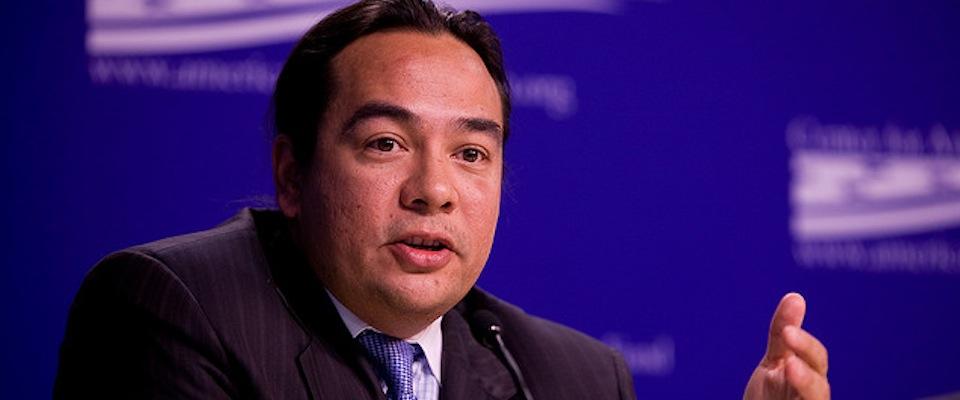 Keith Harper says he always wanted a career that helped his people—indigenous people.
Keith Harper says he always wanted a career that helped his people—indigenous people.
